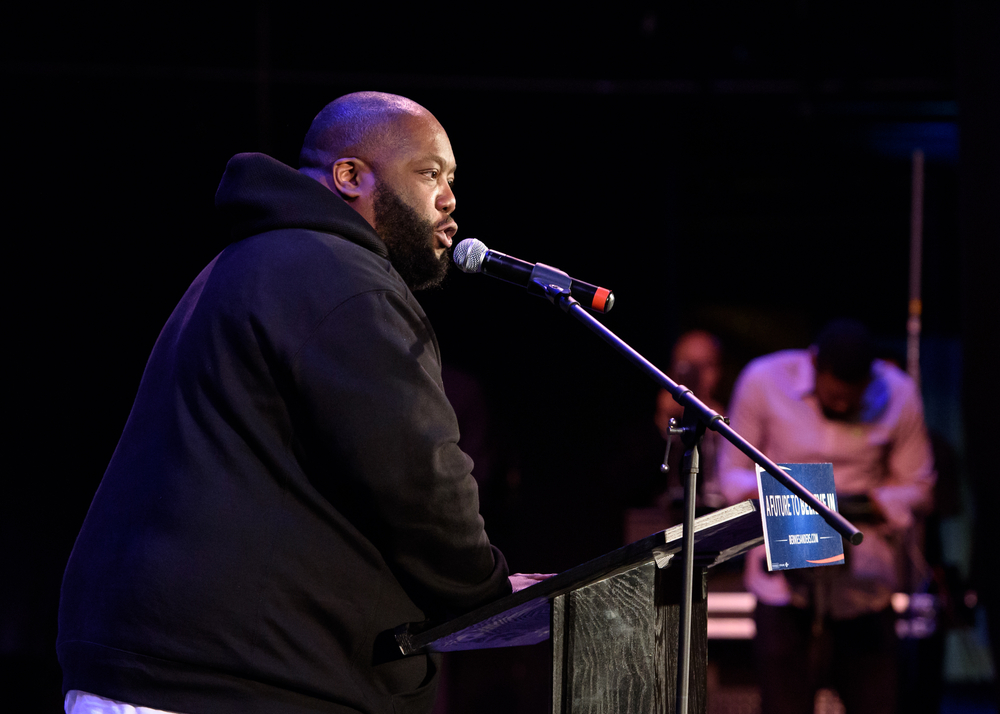
Due to state regulations that prohibit convicted felons—even non-violent ones—from owning, managing or even working in a marijuana dispensary, African Americans, who have been incarcerated disproportionately, aren’t afforded the opportunity to join in on the medical and legal marijuana boom that the U.S. economy is enjoying right now. With 28 states plus Washington, D.C. now allowing some form of marijuana use, the industry is tipped to generate $40 billion by 2020.
In a recent editorial in Rolling Stone, Atlanta-based rapper and activist Killer Mike, one of Bernie Sanders’ most famous endorsers, penned an open letter to the public about the lack of opportunities for African Americans in the burgeoning legal marijuana trade, and how this major issue can be resolved.
“Not everyone is benefitting from the marijuana boom,” wrote Killer Mike (born Michael Render). “As more and more people race to cash in, it’s becoming apparent that African-Americans in particular are being left behind. Just one percent of America’s 3,200 to 3,600 marijuana dispensaries are black-owned. Although there are a number of barriers to entry, one of the most concerning is that people convicted of nonviolent drug crimes are often disqualified from participation in the marijuana industry altogether—something that states like California have begun to address with their marijuana reform initiatives.”
Killer Mike goes on to outline the history of anti-marijuana crusader Harry Anslinger, the nation’s first anti-drug boss who headed the DEA’s forebear, the Federal Bureau of Narcotics. Anslinger has been quoted as saying, “Reefer makes darkies think they’re as good as white men” and that weed causes “white women to seek sexual relations with Negroes, entertainers and any others.”
Anslinger’s brand of propaganda led to the War on Drugs as we know it and the disproportionate incarceration of African-American men who are overrepresented in criminal justice systems nationwide.
“Given the history of marijuana prohibition in the United States—a history rooted in the deliberate demonization and criminalization of black and Hispanic men—it’s clear that barring access to people convicted of nonviolent drug crimes ends up reproducing many of the same racial inequalities that have characterized marijuana laws for decades,” wrote Killer Mike. “As marijuana reform begins to de-escalate the drug war, creating new opportunities for employment and entrepreneurship in the process, it is imperative that the people most in need of a second chance actually get one. The price they have already paid for our failed drug policy is steep enough.”